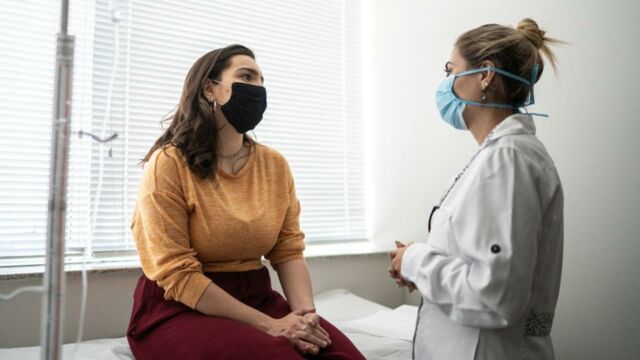Gynecologists are doctors who have extensive expertise in female health, especially in the female reproductive system. Despite the importance of gynecology check-ups, a concerning number of females only see gynecologists when they’re already pregnant. Here are some benefits of seeing a gynecologist and how often you should see them.
Discover our latest podcast
1. Why should you see a gynecologist?
- Checking the risk of STDs: STDs or sexually transmitted diseases are infections that can spread from one person to another through sexual intercourse (oral, vaginal, or anal sex). Contracting STDs can be a nightmare, as they can take a toll on their health, causing myriad long-term health issues such as inflammation and cervical cancer. A gynecologist can conduct special practices to verify whether your body is containing the STD virus, hence giving prompt medication to minimize its impact.
- Controlling pregnancy: according to MedicalNewsToday, it's important to see a gynecologist if you suddenly stop having your period but have not prepared for a baby and need contraception. Allure reports that a gynecologist can give you invaluable advice on suitable types of birth control methods that won’t do harm to your body, along with suggesting diets, medications, and family plannings beneficial for your health.

- Performing pelvic exam: Should you experience issues such as unusual vaginal discharge or a menstrual disorder, it’s recommended that you visit a gynecologist to have a pelvic exam and a Pap smear. During the pelvic exam, the doctor will examine the vulva and the labia to detect signs of abnormalities in your organs and give preventive medications. A Pap smear is also conducted during the pelvic exam to test for cancer.
2. At what age should you start visiting a gynecologist?
The American College of Obstetricians and Gynecologists suggests that it’s best to start having regular check-ups with gynecologists at the age of 13—when puberty begins. Building up a relationship with a gynecologist at an early age will help you feel comfortable in consequent encounters and makes communications easier. As a result, the gynecologist is able to keep track of your health in the long term and propose suitable counselling on health issues. By contrast, if you refrain from seeing a gynecologist, your risk of contracting reproductive health issues will increase, as no preventive course of medication is prepared.
3. How often should you visit a gynecologist?
According to MedicalNewsToday, those aged between 21 and 29 should receive a gynecology exam at least once a year to identify possible diseases at their early stages and have proper medications. Females who are sexually active at this age stand a high risk of contracting STDs or other health issues. Therefore, an annual check-up with gynecologists will ensure you won’t encounter undesirable health issues in the future.
Read more:
⋙ Sexual health: Four unfamiliar STDs you need to know about
⋙ Pelvic health: Women should never pee in the shower, here’s why















